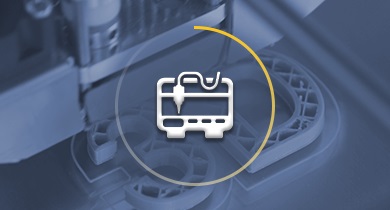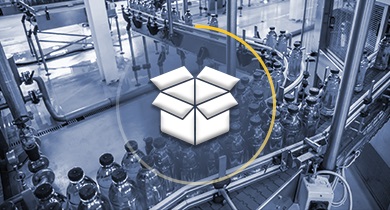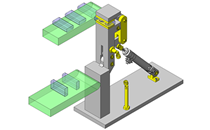Sponge sheets / SI, Hanenaito® / low rebound / C15, C25, C27 / adhesive layer
Part Number
Once your search is narrowed to one product,
the corresponding part number is displayed here.
- Drawing / Specifications
- 3D Preview 3D preview is available after complete configuration
- Part Numbers
- More Information
- Catalog
- Technical Information
Back to the Category Panels (polyurethane rubber, rubber, foam, felt)
Technical Drawing - Panels (polyurethane rubber, rubber, foam, felt)

Open the technical drawing in the new window
Available dimensions and tolerances can be found under the tab More information.
Basic Properties (e.g., material, hardness, coating, tolerance) - Panels (polyurethane rubber, rubber, foam, felt)
| No Adhesive | Adhesive | Material | Hardness | Color |
| SUNSET | SUNSETA | Low Elasticity Rubber Sponge (Hanenaito® Sponge) | Asker C25 | Black |
| SPTA | - | Low Rebound Sponge | Asker C27 | White |
| SNPG | - | Low Strain Sponge (Silicone Foam) | Asker C15 | Green (T 3mm) White (T 6mm) |
Hanenaito® is a registered trademark of Naigai Rubber Industry Co., Ltd.
The values of hardness are reference values.
■Accuracy Standards
T Dimension Tolerance
| T | Tolerance |
| 3, 5 | ±0.5 |
| 6~20 | ±1.0 |
A, B Dimension Tolerance
| A, B | Tolerance |
| 190 or Less | ±1.5 |
| 200~390 | ±2.0 |
| 400 or More | ±3.0 |
Further specifications can be found under the tab More information.
Composition of a Product Code - Panels (polyurethane rubber, rubber, foam, felt)
| Part Number | - | A | - | B | - | T |
| SUNSET | - | 500 | - | 350 | - | 10 |
General Information - Panels (polyurethane rubber, rubber, foam, felt)
_-_Sortiment.jpg)
Selection details of panels (polyurethane rubber, rubber, foam, felt)
- Material: polyurethane rubber (PU/PUR), heat-resistant polyurethane rubber, low-impact polyurethane rubber, abrasion-resistant polyurethane rubber, antistatic polyurethane, nitrile (NBR), chloroprene rubber (CR), polyethylene (EPDM), silicone (SI), fluorine (FPM), butyl rubber (IIR), natural rubber (NR), hard rubber, special synthetic rubber, polyurethane foam, head-insulating foam, polyethylene foam, low-rebound foam
- Thickness (mm): 0.5 to 50
- Width (mm): 3 to 500
- Length (mm): 10 to 2000
Description/Basics
Foam plates and rubber plates are provided for damping or for sound proofing. MISUMI offers these in various Shore hardening for a wide variety of tasks. Due to the variety of materials, different resistances to environmental influences are possible depending on the application. The foam plates reduce sound in machines and can reduce the sound emissions of a system. For more information on foam characteristics, follow this link.
Rubber plates or foam plates are also suitable in conveyor systems to absorb components to be transported at a dampened level or to protect them from damage as a lateral guide when the components bump into each other. Hard rubber panels or low-impact rubber or foam panels reduce the impact energy of the components. These minimize and lower the vibrations in an application.
In addition, MISUMI offers highly abrasion-resistant polyurethane (Vulkollan), which has an abrasion resistance that is six times higher than with conventional polyurethane.
Ceramic polyurethane plates contain ceramic particles. After machining, these can have a smooth surface despite low Shore hardness.
The polyurethane rubber plates are also available antistatically. The specific resistance of antistatic polyurethane plates prevents static charging. This prevents any damage to electronic components.
For applications with higher temperatures, MISUMI offers heat-resistant polyurethane rubber, which can withstand a temperature range of up to approx. ~120°C (see the product specifications for exact information).
MISUMI also offers low-friction and anti-friction rubber plates. Low-friction rubber plates are often used in the gentle component guide for belt conveyors and roller conveyors.
Felt plates have the property of absorbing or dispensing oil and other liquids via the capillary effect. This property can be used to remove, for example, excess oil on a belt conveyor.
In addition, MISUMI offers rubber plates and foam plates that are self-adhesive for simplified assembly. Furthermore, you will find double-adhesive tape for attaching rubber plates and foam plates.
Additional properties on foam panels and rubber plates can be found in the Properties PDF.
MISUMI also offers these products in a round shape as discs and sleeves made of rubber, natural rubber, foam and felt.
Application Examples - Panels (polyurethane rubber, rubber, foam, felt)

Application example
(1) Low-friction rubber plate (2) belt conveyor

Application example
(1) Vibration damping plate
Industrial Applications




Part Number:
- In order to open the 3D preview, the part number must be fixed.
3D preview is not available, because the part number has not yet been determined.
Part Number
|
|---|
| SNPG-[20-500/10]-[20-300/10]-[3,6] |
| SPTA-[20-500/10]-[20-500/10]-[5,10,15,20] |
| SUNSET-[20-500/10]-[20-350/10]-[3,5,8,10] |
| SUNSETA-[20-500/10]-[20-350/10]-[3,5,8,10] |
| Part Number | Minimum order quantity | Volume Discount | RoHS | Grade, Type | With or w/o Adhesive | Thickness T (mm) | Width A (mm) | Length B (mm) | Hardness (Shore, Asker, Penetration) | Color | |
|---|---|---|---|---|---|---|---|---|---|---|---|
| 1 | 7 Days | 10 | [Silicon (SI)] Low Strain Sponge (Silicone Foam) | No Adhesive | 3 ~ 6 | 20 ~ 500 | 20 ~ 300 | Asker C15 | - | ||
| 1 | 7 Days | 10 | [Low Rebound Sponge] Low Rebound Sponge | No Adhesive | 5 ~ 20 | 20 ~ 500 | 20 ~ 500 | Asker C27 | White | ||
| 1 | 7 Days | 10 | [Low Rebound Sponge] Low Elasticity Rubber Sponge (Hanenaito Sponge) | No Adhesive | 3 ~ 10 | 20 ~ 500 | 20 ~ 350 | Asker C25 | Black | ||
| 1 | 7 Days | 10 | [Low Rebound Sponge] Low Elasticity Rubber Sponge (Hanenaito Sponge) | Adhesive | 3 ~ 10 | 20 ~ 500 | 20 ~ 350 | Asker C25 | Black |
Loading...
Back to the Category Panels (polyurethane rubber, rubber, foam, felt)
Technical Drawing - Panels (polyurethane rubber, rubber, foam, felt)

Open the technical drawing in the new window
Specification Tables - Panels (polyurethane rubber, rubber, foam, felt)
| Part Number | 10mm Increment | T Selection | |
| A | B | ||
| SUNSET SUNSETA | 20~500 | 20~350 | 3 5 8 10 |
| SPTA | 20~500 | 20~500 | 5 10 15 20 |
| SNPG | 20~500 | 20~300 | 3 6 |
| (Ex.) | Part Number | - | A | - | B | - | T | >> | (Unit Price) x (Material Multiplier) = Standard Type Unit Price | ||
| SUNSETA | - | 100 | - | 50 | - | 3 |
| Part Number | T | A | Unit Price | |||
| B | ||||||
| 20~100 | 110~200 | 210~300 | 310~350 | |||
No Adhesive SUNSET (x1.0) Adhesive SUNSETA (x1.2) ( ) Material Multiplier | 3 | 20~100 | - | - | - | |
| 110~200 | ||||||
| 210~300 | ||||||
| 310~400 | ||||||
| 410~500 | ||||||
| 5 | 20~100 | - | - | - | ||
| 110~200 | ||||||
| 210~300 | ||||||
| 310~400 | ||||||
| 410~500 | ||||||
| 8 | 20~100 | - | - | - | ||
| 110~200 | ||||||
| 210~300 | ||||||
| 310~400 | ||||||
| 410~500 | ||||||
| 10 | 20~100 | - | - | - | ||
| 110~200 | ||||||
| 210~300 | ||||||
| 310~400 | ||||||
| 410~500 | ||||||
| Part Number | T | A | Unit Price | ||||
| B | |||||||
| 20~100 | 110~200 | 210~300 | 310~400 | 410~500 | |||
| SPTA | 5 | 20~100 | - | - | - | - | |
| 110~200 | |||||||
| 210~300 | |||||||
| 310~400 | |||||||
| 410~500 | |||||||
| 10 | 20~100 | - | - | - | - | ||
| 110~200 | |||||||
| 210~300 | |||||||
| 310~400 | |||||||
| 410~500 | |||||||
| 15 | 20~100 | - | - | - | - | ||
| 110~200 | |||||||
| 210~300 | |||||||
| 310~400 | |||||||
| 410~500 | |||||||
| 20 | 20~100 | - | - | - | - | ||
| 110~200 | |||||||
| 210~300 | |||||||
| 310~400 | |||||||
| 410~500 | |||||||
| SNPG | 3 (Green) | 20~100 | - | - | - | - | |
| 110~200 | |||||||
| 210~300 | |||||||
| 310~400 | |||||||
| 410~500 | |||||||
| 6 (White) | 20~100 | - | - | - | - | ||
| 110~200 | |||||||
| 210~300 | |||||||
| 310~400 | |||||||
| 410~500 | |||||||
More Information
■Features
■Low Elasticity Rubber Sponge (Hanenaito® Sponge)
• It is low elasticity rubber (Hanenaito®) foam.
• Excels in shock absorption.
• Lightweight with specific gravity at 0.3.
■Low Rebound Sponge
• It is bridge foam of styrene-type elastomer.
• Excellent shock absorption.
■Low Strain Sponge (Silicone Foam)
• It is a silicone foam.
• The material resists crushing, even after repetitive impact absorption.
• Usable in a very wide temperature range of -40°C ~ 150°C.
Peel off the protective film on the surface before use.
■Characteristics of Sponges
| Item | Unit | Low Elasticity Rubber Sponge | Low Rebound Sponge | Low Strain Sponge |
| Apparent Density | g/cm3 | 0.3 | 0.097 | 0.26 |
| Air Bubble | - | Independent Cell | Independent Cell | Independent Cell |
| Tensile Strength | MPa {kgf/cm2} | 0.9 {9} | 0.9 {9} | 0.32 {3.2} |
| Elongation | % | 480 | 210 | 73 |
| 25% Compression Set | % | 62 | 5.1 | 0.2 |
| Temperature of Continuous Use | °C | 20~60 | 10~50 | -40~150 |
| Abrasion Resistance | ○ | ○ | △ | |
| Anti-Aging | △ | △ | ◎ | |
| Water Resistance | △ | ◎ | ◎ | |
| Chemical Resistance | Oil (Gasoline) | × | × | × |
| Acid | × | ○ | ◎ | |
| Alkali | × | ○ | ◎ | |
| Organic Solvent | × | × | × | |
For Adhesive Type, the adhesion strength decreases under high temperature (at approx. 80°C or more).
The temperature of continuous use is the temperature at which long-term use does not cause a sharp decline in quality.
Compression Set JIS K 6262
Values in the table to the right are for reference and not guaranteed.
Basic information
| Material | Sponge | Hole Machining | No Drilling Alteration |
|---|
Configure
Basic Attributes
-
Grade, Type
- Silicon (SI)
- Low Rebound Sponge
- Silicon (SI)
-
With or w/o Adhesive
- Adhesive
- No Adhesive
-
Thickness T(mm)
-
Width A(mm)
-
Length B(mm)
-
Hardness (Shore, Asker, Penetration)
-
Color
- Black
- White
-
Type
- SNPG
- SPTA
- SUNSET
- SUNSETA
-
Filter by CAD data type
- 2D
- 3D
Optional Attributes
- The specifications and dimensions of some parts may not be fully covered. For exact details, refer to manufacturer catalogs .
Frequently Asked Questions (FAQ)
-
Question:
How can you attach a rubber plate?
-
Answer:
A rubber plate can be attached with double-adhesive tape. MISUMI offers rubber plates with configurable through holes or counterbores with adhesive tape.
-
Question:
Do you have screw-on rubber panels?
-
Answer:
MISUMI offers rubber plates that can be screwed on via a through hole or counterbore. The rubber plates with counterbores are well suited for applications that need to form a flat surface.
-
Question:
Is NBR oil-resistant?
-
Answer:
The NBR rubber is oil-resistant and is often used as a sealing material for rubber or foam. In addition, NBR has good thermal resistance, which in combination with high abrasion resistance is the best suited NBR material for seals.
-
Question:
Which material reduces vibrations well?
-
Answer:
Silicone gel vibration dampers reduce vibrations well. This elastic material reduces the transmission of vibrations to the subsequent component and also contributes to the acoustics.
-
Question:
What is Vulkollan?
-
Answer:
Vulkollan is a highly abrasion-resistant polyurethane rubber that has high wear resistance. It is one of the high-performance rubbers that has little pressure deformation and can withstand high impact forces. In addition, Vulkollan has a high tear strength. However, over time Vulkollan may change its colour, but without losing its mechanical properties.
Tech Support
- Technical Support
- Tel:+49 69 668173-0 / FAX:+49 69 668173-360
- Technical Inquiry


















